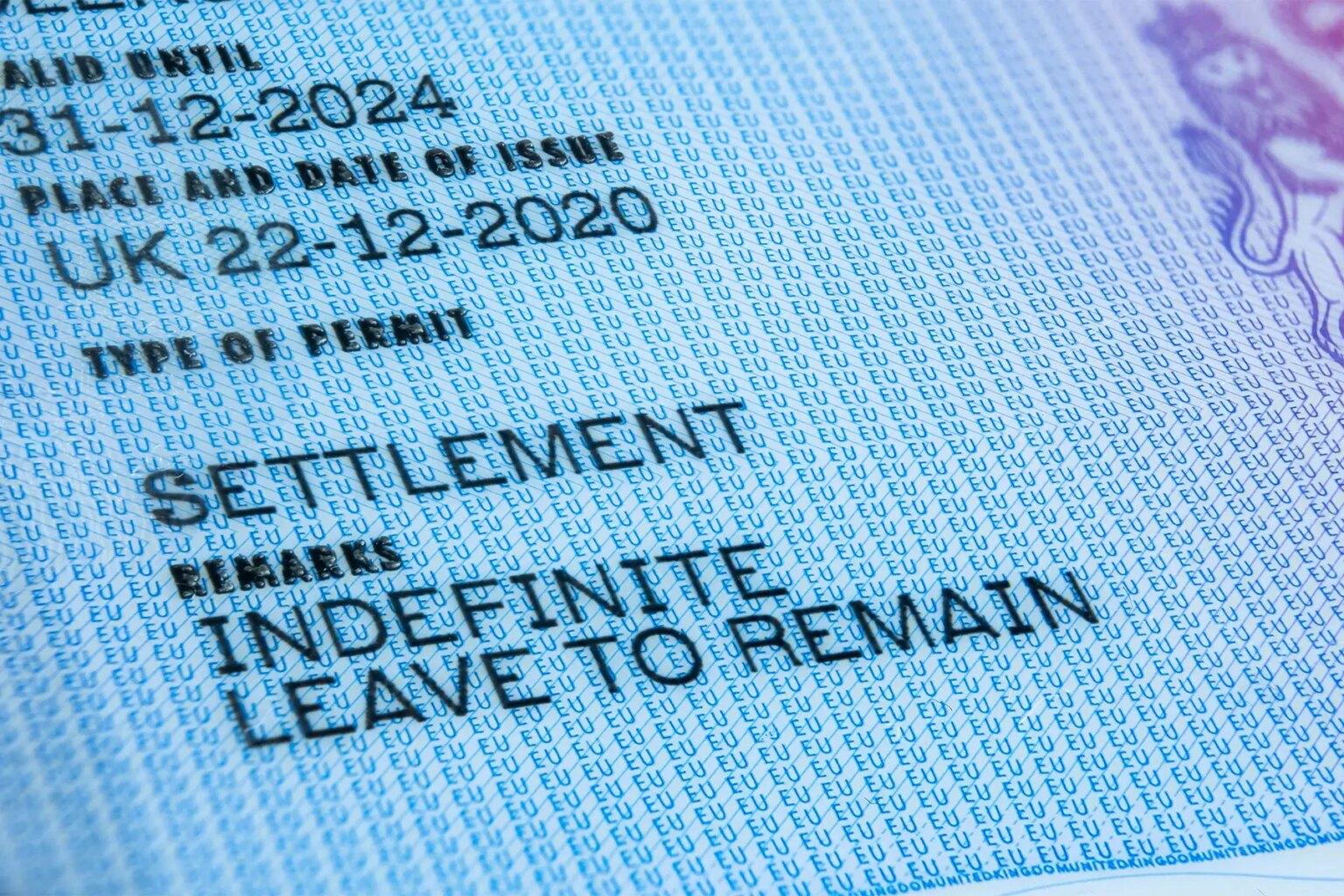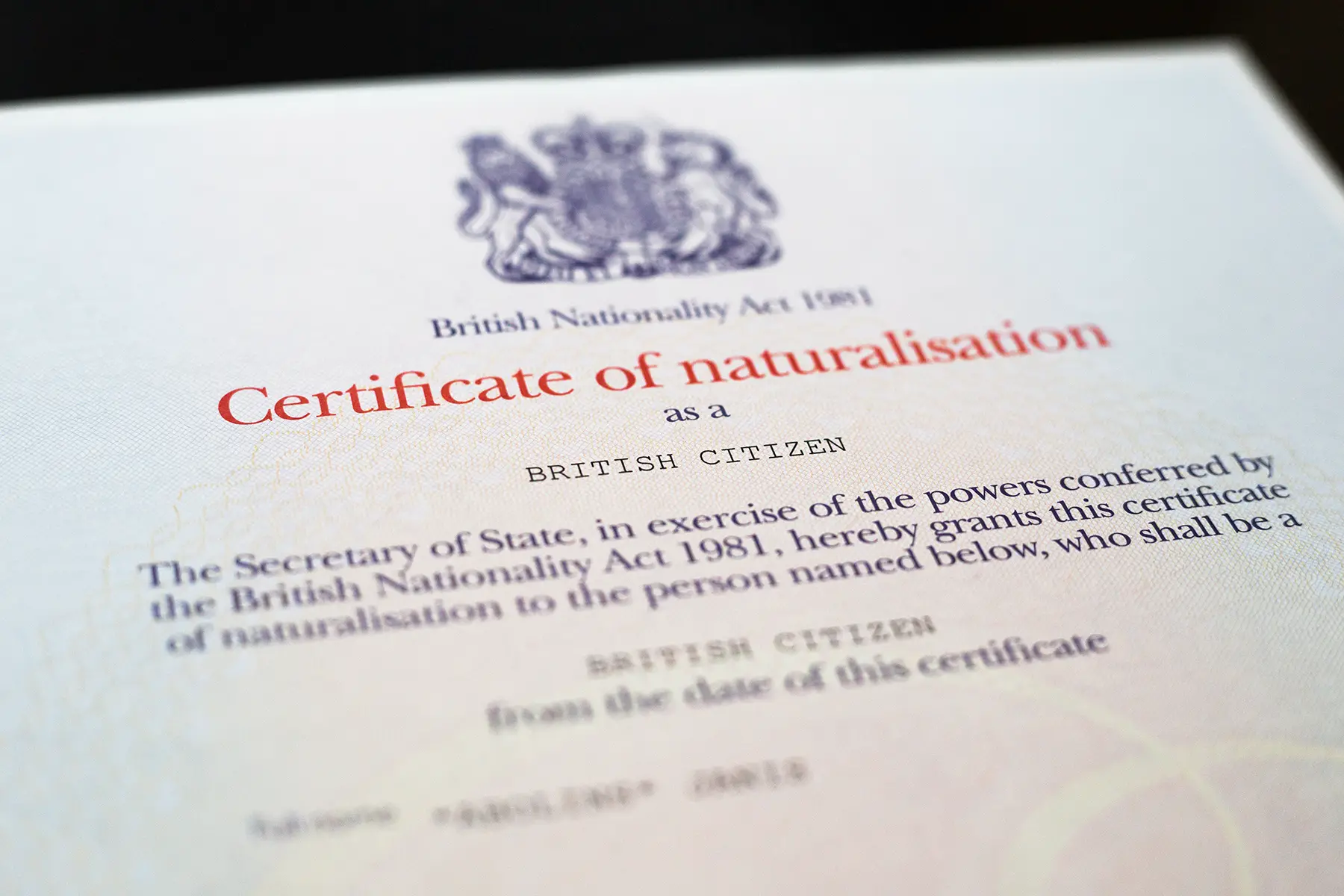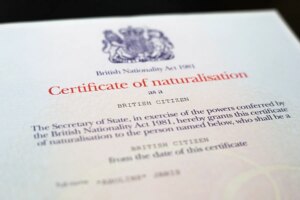If you are looking to settle down in the UK, you will be pleased to know that the country allows overseas residents that meet certain criteria to apply for permanent residence. Moreover, you can do this as a precursor to obtaining UK citizenship, or even as an alternative to it.
To help you understand the process of becoming a permanent resident in the UK, this article includes the following information:
- Permanent residence in the UK
- The difference between citizenship and permanent residence
- Requirements for permanent residence in the UK
- How to apply for permanent residence
- Applying for permanent residence on a UK work visa
- Permanent residence on a UK family visa
- Applying for permanent residence on the 10-year residency route
- Applying for permanent residence as an EU citizen already living in the UK
- Apply for permanent residence as a refugee
- Permanent residence through the Windrush Scheme
- Applying for settlement as a member of the UK armed forces
- Permanent residence on a UK Ancestry visa
- Permanent residence costs in the UK
- Settlement in the UK for family members
- Leave to remain for stateless persons living in the UK
- Losing your settlement rights in the UK
- What to do if your application for permanent residence is rejected
- Useful resources
lingoking
Need some help getting your documents professionally translated? Then look no further than lingoking. On their easy-to-use online platform, you'll find a team of translation experts ready to help you. Whether it's birth certificates, marriage certificates, or something else, you'll find the help you need with lingoking.
Permanent residence in the UK
You can apply for permanent residence in the UK if you meet certain eligibility requirements. Permanent settlement is known as indefinite leave to remain (ILR), and holders of ILR receive a settlement permit that allows them to travel freely to and from the UK as often as they want.
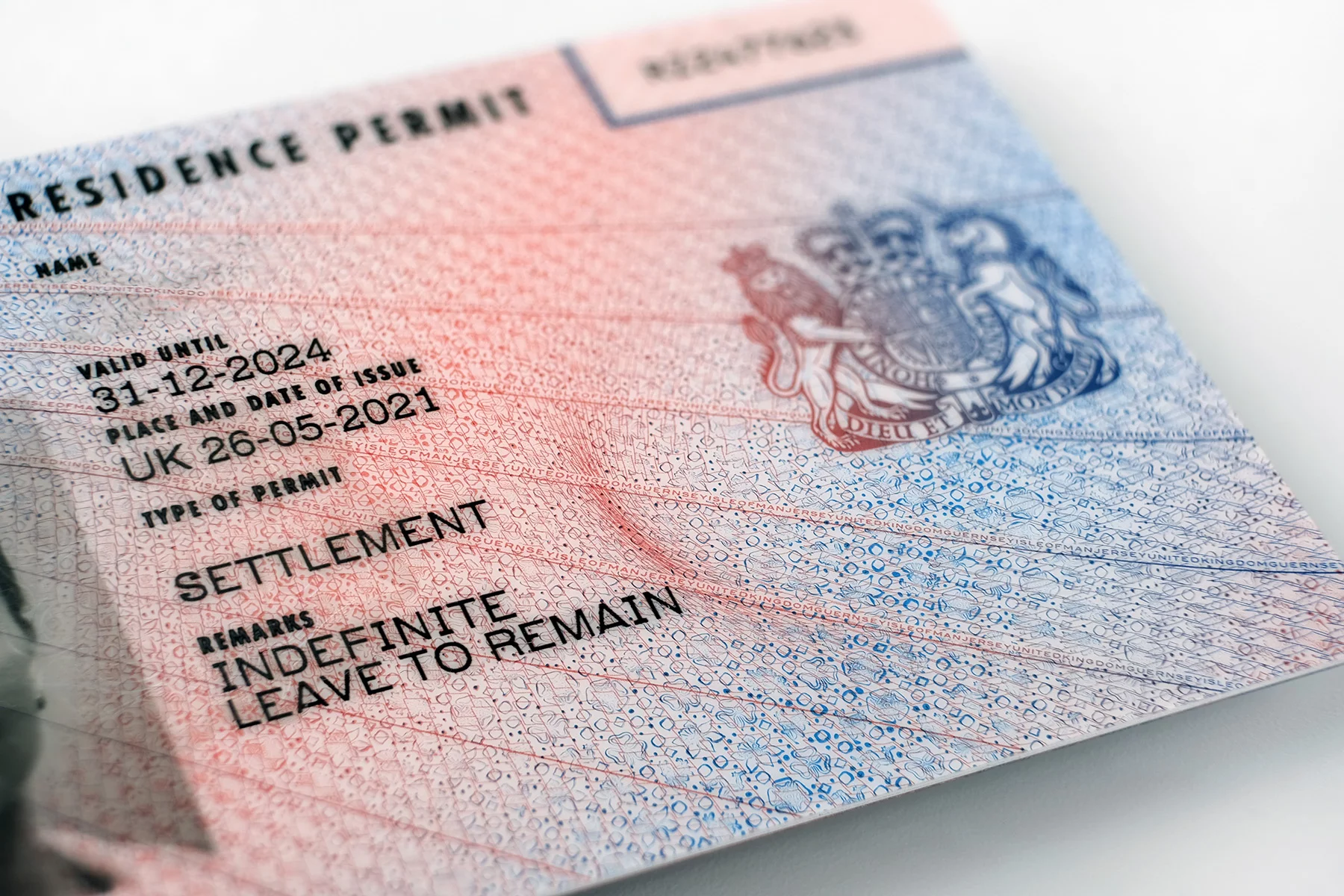
The UK Home Office Visas and Immigration Service is the government department that deals with both permanent and temporary residence permits in the UK. In 2021, the department issued 106,192 settlement permits and 190,175 UK citizenship grants.
Unlike some other European countries, the UK only has one type of settlement permit. However, there are multiple routes to obtaining permanent residence in the UK, which we will explain later on.
The difference between citizenship and permanent residence
There are many similarities between permanent residence and citizenship in the UK. These include:
- The right to work, study, or start your own business in the UK
- Access to social security in the UK
- Full access to NHS public healthcare
- The right to leave and return to the UK as often as you want
- The right to buy a property or get a mortgage in the UK
There are also similarities in terms of requirements. In fact, one of the requirements for most UK citizenship applications is that you must have had ILR status for at least 12 months. This means that you will need to meet permanent residence requirements in order to apply for citizenship.
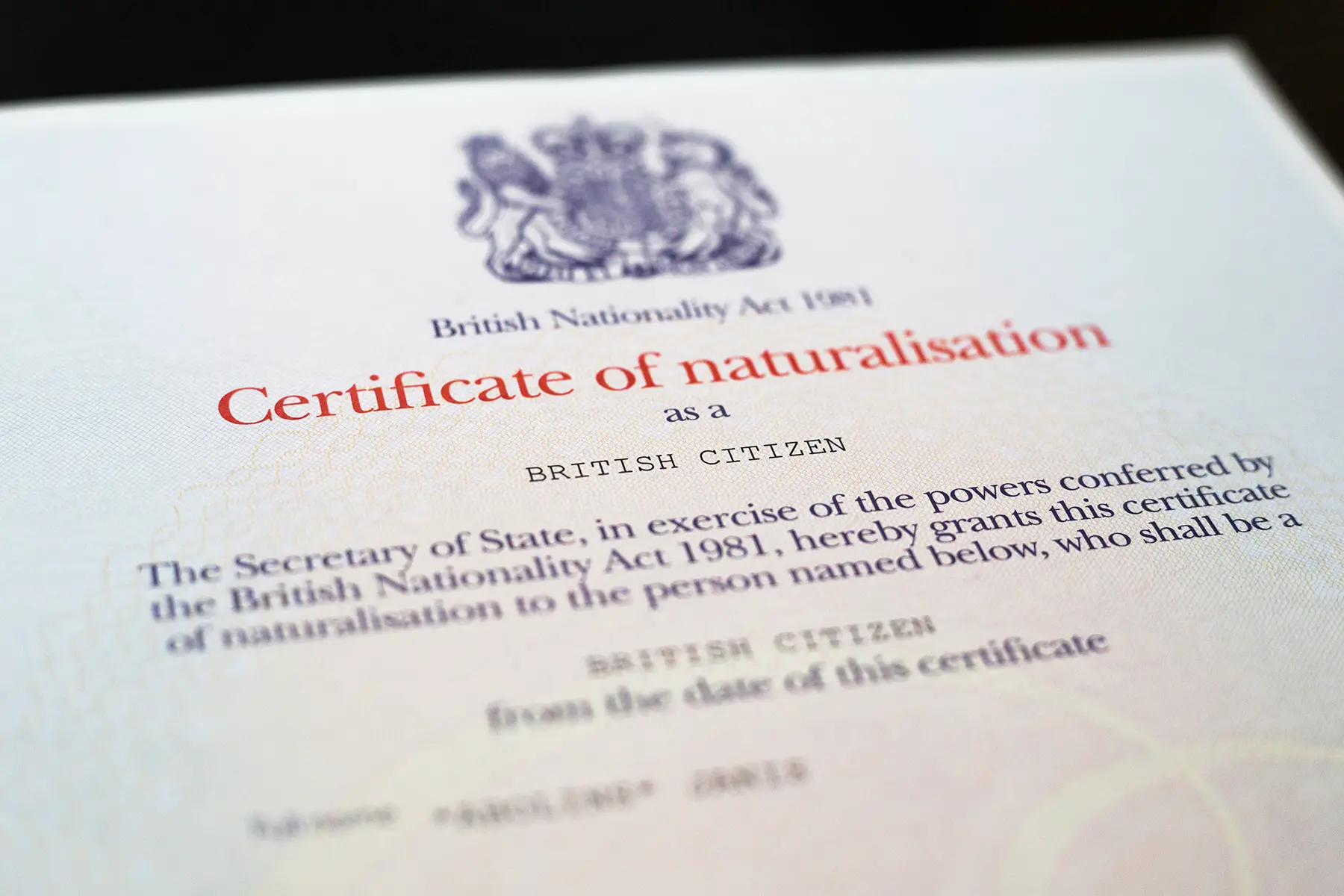
However, there are also several differences when it comes to both rights and requirements. For instance, UK citizens have access to the following privileges that permanent residents don’t:
- UK passport
- Full voting rights in national and local elections
- The right to stand for any position in public office
- The right to relocate to another country for unlimited periods; whereas permanent residents can only stay outside the UK for two years before it may affect their residency rights
- More citizenship rights for any children born outside of the UK
Unsurprisingly, full UK citizenship also involves meeting more requirements. Generally, you will need to have had settled status in the UK for one year before applying for citizenship. The standard residency period for permanent residence in the UK is also five years, meaning that it is typically six years for citizenship.
Attaining citizenship is also a lengthier process and involves additional costs. Moreover, you will have to give up your existing citizenship in order to become a UK citizen if your home country does not allow dual citizenship.
Requirements for permanent residence in the UK
Requirements for ILR in the UK vary slightly depending on the route through which you are applying. However, in general, they consist of:
- Continuous residency in the UK of five years. This is sometimes reduced (for example, to two or three years for those living in the UK on certain work visas or family visas) or increased (for those applying under the 10-year residency route)
- Proof of sufficient English language skills
- Passing the Life in the UK Test
- Evidence that you continue to meet the requirements of your UK visa; for example, you meet the minimum salary requirements for skilled work visas or are still married if you are on a spouse family visa
Notably, certain categories of applicant, for example refugees and those applying for settled status under the EU Settlement Scheme, don’t need to meet the English language skills requirements or pass the Life in the UK Test.
How to apply for permanent residence
You can apply online for permanent residence in the UK. In most cases, you can submit your application up to 28 days before you meet the residency eligibility requirement.
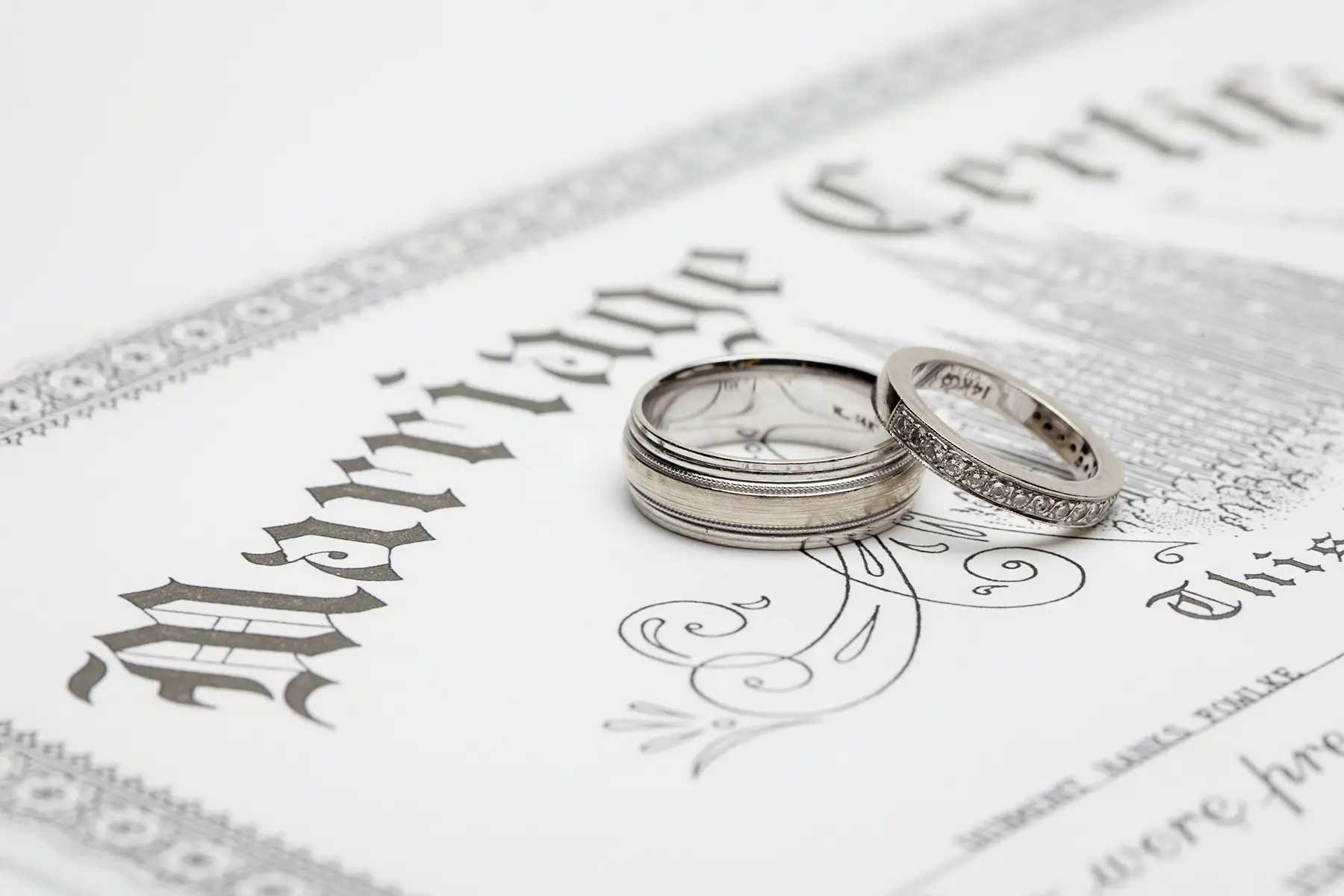
While the exact process for applying depends on your application route, you will typically need to provide the following:
- Valid photo ID such as your passport
- Your existing UK residence permit, usually a Biometric Residence Permit (BRP) if issued within the last 10 years
- Proof that you meet any English language requirements
- Life in the UK Test results
- Documents to prove that you meet the requirements for the route under which you are applying; for example, bank statements to show minimum salary requirements or a marriage certificate for proof of relationship
Notably, your marriage certificate will need to be translated into English. This is where a professional translation service such as lingoking can help.
Applications can take up to six months to process. As part of your application, you will need to make an appointment at a UK Visa and Citizenship Application Service (UKVAS) to provide your biometric information (fingerprints and photo) for your settlement permit.
Applying for permanent residence on a UK work visa
You can apply for UK permanent residence if you have been living in the country for five years on a work-related visa. However, this is reduced to either two or three years on certain business and entrepreneur visas. The exact process and requirements depend on which of the following visas you have:
- Tier 2 visa (Skilled Worker, International Sportsperson, or Minister of Religion)
- Business entrepreneur, investor, or global talent visa
- Innovator visa
- Overseas business representative visa
- Turkish worker or businessperson visa
- Domestic worker visa
- Private servant in a diplomatic household visa
Permanent residence on a UK family visa
You can apply for ILR if you have come to the country on a family visa to stay with a relative who is either a British citizen or a permanent resident. The residency requirement is typically five years, however, it can sometimes be shorter or longer depending on your circumstances.

You can apply under this route if you are one of the following relatives of a UK citizen or settled resident:
- Spouse or partner
- Child
- Parent
- Dependant adult relative
You can also apply using the family visa route if your partner dies or if the relationship ended due to domestic violence or abuse.
Applying for permanent residence on the 10-year residency route
You can apply for permanent residence in the UK through this route if you have either:
- Lived in the UK legally for 10 continuous years, regardless of what visa you have
- Been granted a UK visa on the basis of your private life and have lived in the UK for 10 years
Applying for permanent residence as an EU citizen already living in the UK
EU/EFTA nationals who were living in the UK by 31 December 2020 could apply for settlement in the UK under the EU Settlement Scheme. The deadline for applications was 30 June 2021, however, you can make a late application under certain circumstances if you can provide a valid reason for not applying earlier.
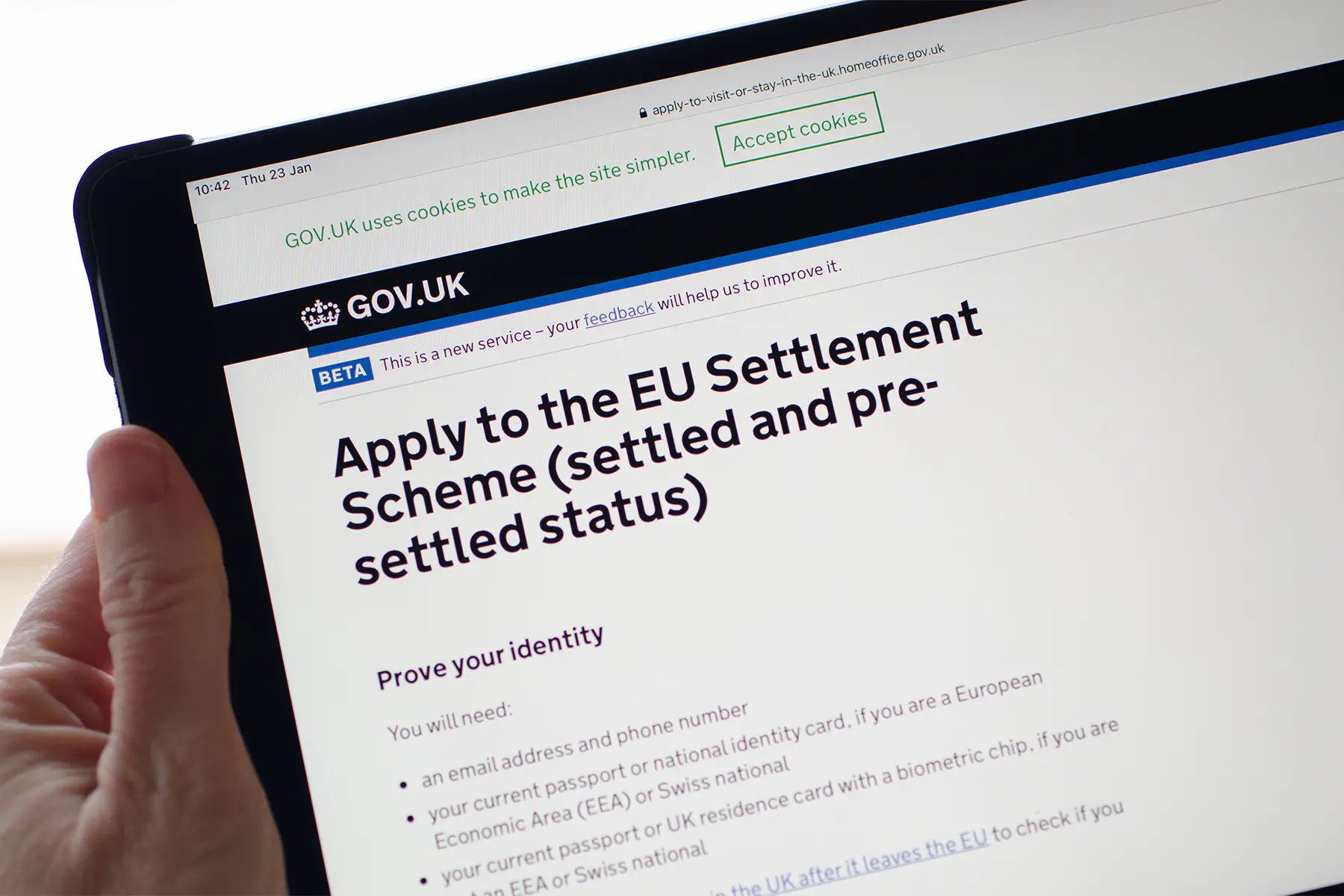
The EU Settlement Scheme is the UK’s post-Brexit residence scheme for EU/EFTA citizens. Under the scheme, those living in the UK could apply for either pre-settled status (if they had been living in the UK for less than five years) or settled status (if they have lived in the country for over five years). Settled status is exactly the same as ILR. Those on pre-settled status can apply to switch to a settled status once they have been living in the UK for five years.
Apply for permanent residence as a refugee
If you have been granted refugee status or humanitarian protection in the UK, you can apply for ILR after five years. Moreover, you don’t need to meet the English language or salary requirements or sit the Life in the UK Test. If you have been granted Discretionary Leave to Remain in the UK, you can apply for ILR after 10 years, or after six years if you received your status before 9 July 2012.
Permanent residence through the Windrush Scheme
This is a scheme for those who are settled in the UK but don’t have any official documents to prove it. The Windrush Scheme is open to:
- Commonwealth nationals who came to the UK before 1973
- Children of Commonwealth nationals who came to the UK before 1973
- Nationals of any country who came to the UK before 31 December 1988 and are now settled in the country
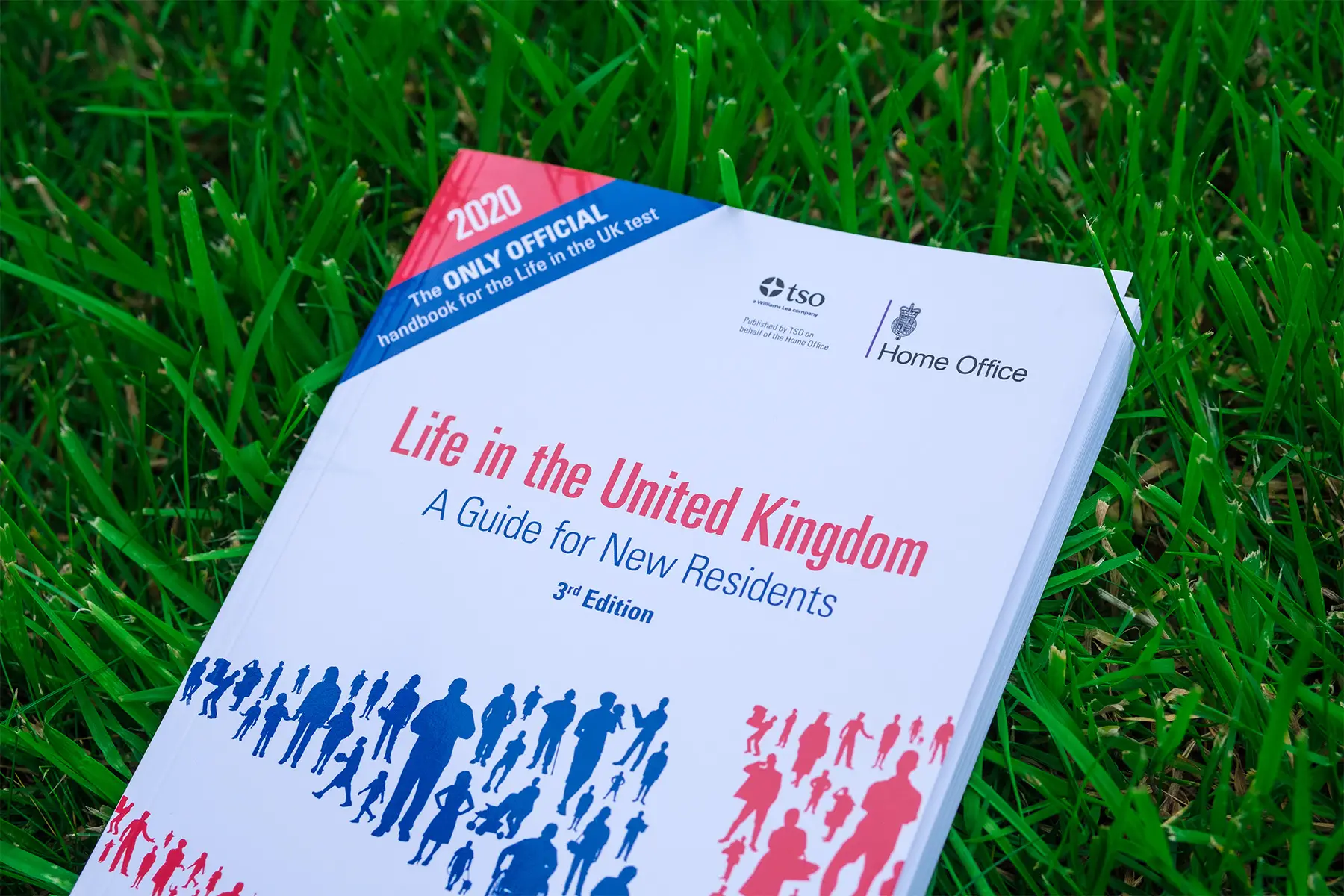
Similar to refugees and EU Settlement Scheme applicants, those applying through the Windrush Scheme are exempt from proving their English language skills or sitting the Life in the UK Test.
Applying for settlement as a member of the UK armed forces
You can apply for permanent residence in the UK if you have served in the UK armed forces for at least four years and are about to leave. You can apply up to 10 weeks before your service ends but you must submit your application within two years of leaving. However, if you are discharged from the forces on medical grounds as a result of your service, then you don’t need to meet the minimum four-year requirement.
Permanent residence on a UK Ancestry visa
You can apply for UK permanent residence if you have been in the country for at least five continuous years on a UK Ancestry visa. To do this, you need to prove that you are still a Commonwealth citizen and have enough money to support yourself and any dependants, in addition to meeting the standard requirements.
Permanent residence costs in the UK
The cost of applying for permanent residence in the UK is £2,389. In addition to this, you have to pay the fee for your BRP which is around £20.

Permanent residence applications are free in the UK if you are applying:
- Through the EU Settlement Scheme
- Through the Windrush Scheme
- As a refugee or someone with humanitarian protection in the UK
If you are applying due to a relationship ending due to domestic violence or abuse, you don’t have to pay the fee if you can show that you can’t afford basic living costs or don’t have a place to live.
Notably, your UK permanent residence doesn’t expire at any point so you don’t need to worry about renewing it. However, your BRP is valid for a maximum of 10 years and you should apply for a replacement once it expires. This currently costs £20 and involves resubmitting your biometric data. If your BRP expires, it doesn’t affect your right to remain in the UK. However, it may make it more difficult to prove to various UK authorities that you are a settled resident.
Settlement in the UK for family members
You can usually include your partner and any children who are aged under 18 on your application as dependants. However, requirements and processes vary between the different application routes, therefore you should check the UK government website for details. You can include children who are older than 18 if they are still your dependants and were below 18 years of age when you first included them as dependants on your UK visa application.
To apply, you usually need to have been living with your spouse/partner for at least five years in the UK; but sometimes less if your own residence requirement is below five years. For some applications, there is a minimum income requirement which is usually £18,600 of household income plus additional money for dependent children. Generally, partners and children can also make their own application as dependants, or apply at a later date.
Once you have settled in the UK, you have the right to be joined by more relatives through the UK family visa scheme. In addition to your spouse/partner and children, your parents and any other dependant adult relatives can come and live with you if they meet the necessary requirements. Once they have lived in the UK for five years, they will then be able to apply for permanent residents themselves.

If you have settled or pre-settled status through the EU Settlement Scheme, the following relatives can apply to join you if they have documents to prove the relationship:
- Spouse or partner, if the relationship started by 31 December 2020
- Dependent children, grandchildren, or great-grandchildren
- Dependent parents, grandparents, or great-grandparents
- Another type of dependent relative if they were living in the UK by 31 December 2020
Leave to remain for stateless persons living in the UK
You can apply for a five-year leave to remain as a stateless person in the UK if you:
- Do not have citizenship in any country
- Are unable to apply for permanent residence in any country
- Are already living in the UK
- Have not applied for asylum as you don’t fear persecution if you were to return to the country you were living in before coming to the UK
You need to apply online and provide the following:
- Valid ID and any travel documents such as visas
- Any evidence you have that proves your immigration status in the UK; for example, a letter from the UK Home Office
- Any documentation that confirms that you are stateless
- Documents that prove where you were living before you came to the UK
The application is free and you can include your partner and any children under 18 as dependants. If your application is successful, you will be eligible to apply for settlement in the UK at the end of the five-year period if you meet all the requirements.
Losing your settlement rights in the UK
In most cases, you will lose your permanent residence status in the UK if you leave the country for two years or more without returning. EU/EFTA nationals with settled status under the EU Settlement Scheme can leave the UK for up to five years without returning. You might be able to reapply and get ILR as a returning resident, and the cost of this is £516.
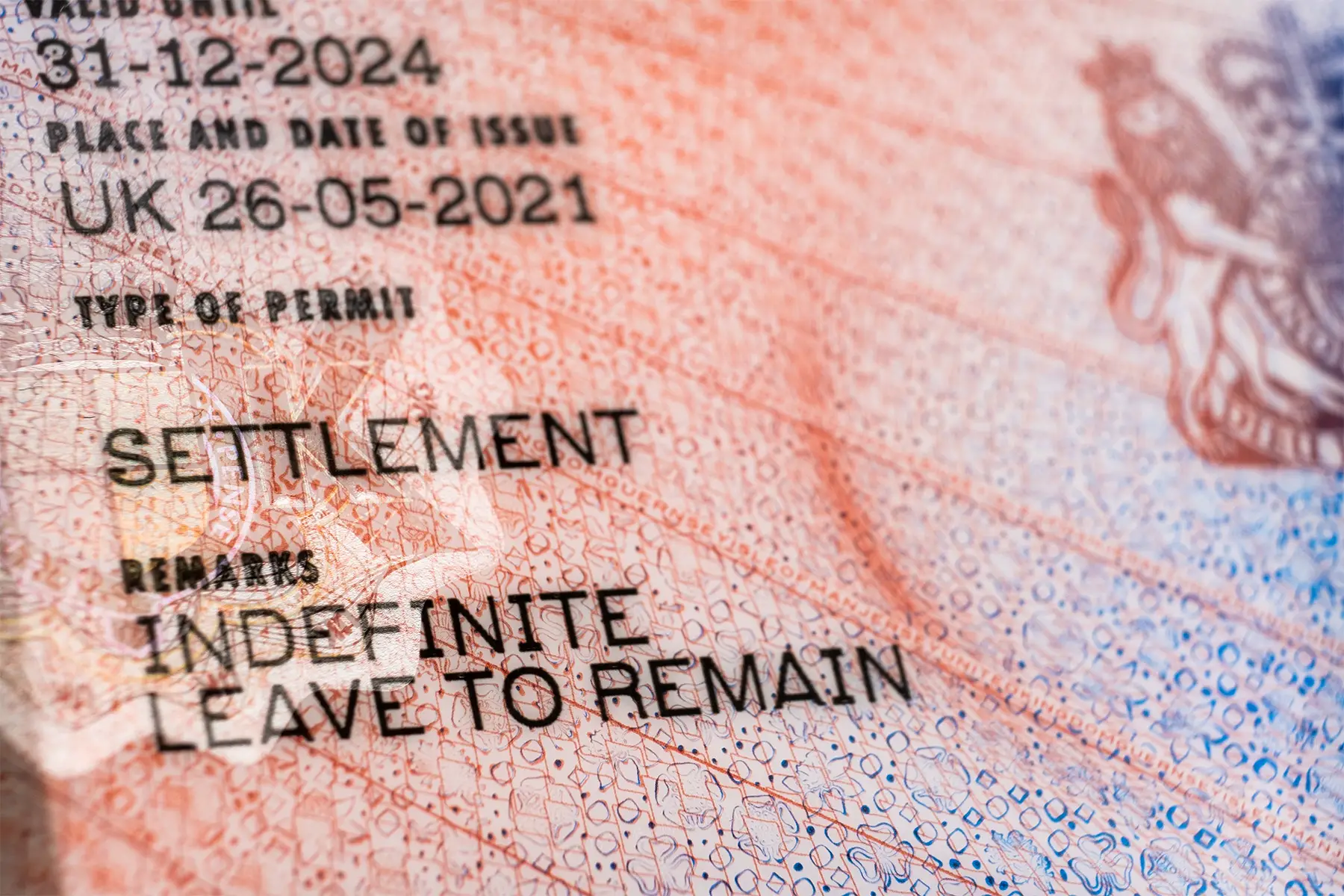
Below are some other reasons why you might lose your UK permanent residence rights:
- If you are subject to a deportation order for criminal activity
- If the UK Home Office finds out that you obtained your ILR by using fake or fraudulent documentation
What to do if your application for permanent residence is rejected
If you feel that your application for ILR is unfairly rejected, you can appeal to the First-tier Tribunal (Immigration and Asylum Chamber). This is part of the UK judicial system which is separate from the government. If you are not eligible for a full appeal for any reason, then you might be able to file a reconsideration request on the decision.
For general complaints about services provided by the UK visa and immigration authorities, you can file a complaint online. You will normally receive a response within 20 working days, or 12 weeks if the complaint is considered to be serious or complex.
If you’re not happy with the outcome, you can ask for a review which can take up to another 20 days. Following this, you can take the matter to the Parliamentary and Health Service Ombudsman if you are still unsatisfied.
However, it is worth noting that appealing a visa decision can sometimes be a costly and lengthy exercise. Because of this, it is wise to get free advice before proceeding. Citizens Advice can provide you with support and signpost you to free or low-cost legal services.
Useful resources
- UK Home Office Visas and Immigration Service – deals with all UK visa, residence, and citizenship issues
- GOV.UK – provides information about applying for different settlements and British citizenship
- Citizens Advice – provides information about the criteria and process of applying for British citizenship
